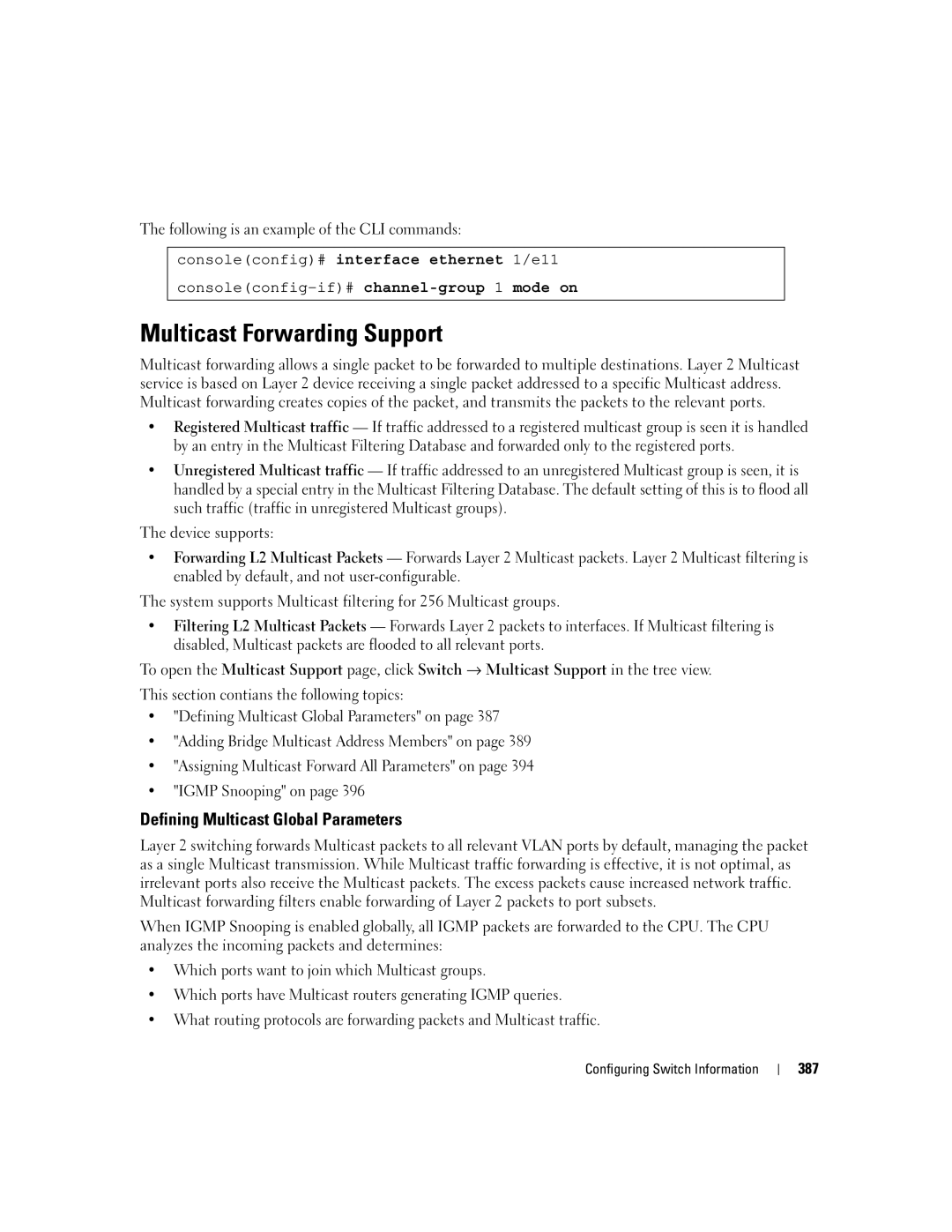
The following is an example of the CLI commands:
console(config)# interface ethernet 1/e11
Multicast Forwarding Support
Multicast forwarding allows a single packet to be forwarded to multiple destinations. Layer 2 Multicast service is based on Layer 2 device receiving a single packet addressed to a specific Multicast address. Multicast forwarding creates copies of the packet, and transmits the packets to the relevant ports.
•Registered Multicast traffic — If traffic addressed to a registered multicast group is seen it is handled by an entry in the Multicast Filtering Database and forwarded only to the registered ports.
•Unregistered Multicast traffic — If traffic addressed to an unregistered Multicast group is seen, it is handled by a special entry in the Multicast Filtering Database. The default setting of this is to flood all such traffic (traffic in unregistered Multicast groups).
The device supports:
•Forwarding L2 Multicast Packets — Forwards Layer 2 Multicast packets. Layer 2 Multicast filtering is enabled by default, and not
The system supports Multicast filtering for 256 Multicast groups.
•Filtering L2 Multicast Packets — Forwards Layer 2 packets to interfaces. If Multicast filtering is disabled, Multicast packets are flooded to all relevant ports.
To open the Multicast Support page, click Switch → Multicast Support in the tree view.
This section contians the following topics:
•"Defining Multicast Global Parameters" on page 387
•"Adding Bridge Multicast Address Members" on page 389
•"Assigning Multicast Forward All Parameters" on page 394
•"IGMP Snooping" on page 396
Defining Multicast Global Parameters
Layer 2 switching forwards Multicast packets to all relevant VLAN ports by default, managing the packet as a single Multicast transmission. While Multicast traffic forwarding is effective, it is not optimal, as irrelevant ports also receive the Multicast packets. The excess packets cause increased network traffic. Multicast forwarding filters enable forwarding of Layer 2 packets to port subsets.
When IGMP Snooping is enabled globally, all IGMP packets are forwarded to the CPU. The CPU analyzes the incoming packets and determines:
•Which ports want to join which Multicast groups.
•Which ports have Multicast routers generating IGMP queries.
•What routing protocols are forwarding packets and Multicast traffic.
Configuring Switch Information
387
